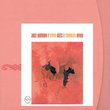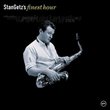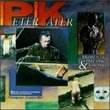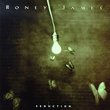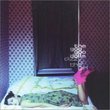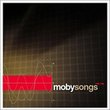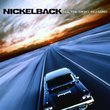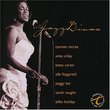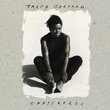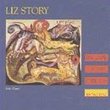| All Artists: Stan Getz Title: Very Best of Stan Getz Members Wishing: 0 Total Copies: 0 Label: Verve Original Release Date: 1/1/1952 Re-Release Date: 3/12/2002 Genres: Jazz, Pop Styles: Cool Jazz, Modern Postbebop Number of Discs: 1 SwapaCD Credits: 1 UPC: 731458421023 |
Search - Stan Getz :: Very Best of Stan Getz
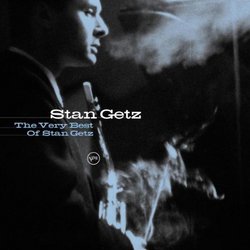 | Stan Getz Very Best of Stan Getz Genres: Jazz, Pop
Feature tracks include 'Early Autumn', 'Crazy Rhythm', 'Yardbird Suite' and 'Imagination'. |
Larger Image |
CD DetailsSynopsis
Album Description Feature tracks include 'Early Autumn', 'Crazy Rhythm', 'Yardbird Suite' and 'Imagination'. Similar CDs
Similarly Requested CDs
|
CD ReviewsNot Getz's very best W. F. Mangum | Pittsburgh, PA United States | 04/12/2003 (3 out of 5 stars) "It is very clear from the first three tracks that these recordings are not Stan Getz, the master tenor sax, best. He deserves better. Although, there are a number of compilations on his career that are noteworthy, none of them hold their weight to his albums. These selections are adequate, but so much is missing from his bossa nova days, and this selection tends to emphasize his other works on standards. Many of these songs seem choppy, and too free-flowing, but there is a lot to be said about his passion to improvise, like "my funny valentine". I was rather surprised by "blood count", and it's soft almost structured texture. But I was disappointed in how many times the piano players, and guitarists, overshadowed Getz' sound. If you are interested in the real Stan Getz, and you want a great compilation, try Verve Jazzmasters 8:Stan Getz, or Verve Jazz Round Midnight." Masterpieces lifted from masterpieces rash67 | USA | 07/23/2002 (4 out of 5 stars) "Stan Getz was the greatest. The most consistently satisfying jazz musician. He is the personification of Cool. To listen to his music is to hear a healing balm poured over the troubles of the day. This is album is another in a series of Verve reissues of his music, some early some late. Great intros to Getz. Yet as romantic, soothing, charming and lyrical as the songs herein are, they are taken out of context. There is a dark side, unlike the reissues of say, Miles Davis, whose entire set of recordings is still with us, the various "Getz Best"'s seems to be replacing the originals as the masterpiece albums from which these gems were lifted keep drifting out of print. So listen and enjoy sheer beauty of the music of the man they called "The Sound". But when you find something you like, get the rest of the album it came of off while you still can! You'll be glad you did." Best of Getz asugar2 | Seattle USA | 02/14/2006 (4 out of 5 stars) "by Marshall Bowden
PopMatters Music Columnist and Critic To a great many people, Stan Getz is the saxophonist who brought Brazilian music, specifically bossa nova, to the United States. There are few who have not heard his recording of "Girl From Ipanema" with composer João Gilberto and his wife Astrud. Verve Records, for whom Getz recorded many of his finest albums, seems intent on promoting this aspect of his career, producing the compilations Getz For Lovers and Getz Plays Jobim: The Girl From Impanema over the past few years. What gets lost in the shuffle is the great deal of straight-ahead jazz playing Getz did prior to and after the Brazilian work. What's nice about The Very Best of Stan Getz is that it introduces newcomers to most aspects of Getz' playing while providing those familiar with his work with a single CD on which every track is a joy to listen to. The first half of this collection demonstrates that Getz was an accomplished bop tenor saxophonist who maintained much of the influence of Lester Young in his tone while using Young's rhythmic technique and phrasing as a starting point for discovering his own language. The result was beautiful sounding, technically brilliant, and fiercely swinging and relaxed. Along with Sonny Rollins and Dexter Gordon, Getz brought the bebop conception of the tenor sax into the modern era. Listening to him blow on a quintet version of "Stella by Starlight" or with Dizzy Gillespie and a super-bop rhythm section (Oscar Peterson, Herb Ellis, Ray Brown, and Max Roach) should serve as a reminder that Getz was much more than a mellow-sounding tenor dreamboat. The same is true of a live rendition of "My Funny Valentine", where he holds his own perfectly well beside trombonist J.J. Johnson, a thoroughly modern bop-trained musician if ever there was one. Not that Getz was mired in tradition. "Night Rider" a track included here from the album Focus, a suite with strings that was composed for Getz by Eddie Sauter, is pure music in abstract form. The saxophonist spins an endlessly inventive series of improvisational figures against the string section's percussive drive, like some fierce combination of Charlie Parker and Stravinsky. It's a tour de force that it's hard to imagine another jazz musician pulling off with as much grace. 1962-1964 were the bossa nova years, and they brought Getz a lot of fame and a lot of money. "Desafinado" comes from the album Jazz Samba, which was Getz' first bossa album. It featured guitarist Charlie Byrd, who was really the first American musician to bring attention to the newly created bossa style. Jazz Samba and the followup, Jazz Samba Encore with Brazilian guitarist Luiz Bonfa were so successful that Verve didn't want to release Getz/Gilberto right away, afraid it would compete with the previous albums, which were still charting. Creed Taylor edited a single version of "Girl From Ipanema" that jettisoned Astrud Gilberto to fame. In his book Bossa Nova, writer Ruy Castro points out that with the money from Getz/Gilberto Stan bought a house that had belonged to George Gershwin's sister, Frances, while João Gilberto received $23,000 for his role as co-star of the album. "Astrud Gilberto, who sang 'Garato de Ipanema' in English and was responsible for the record's international success earned what the American musicians' syndicate paid for a single night of work: $120." Once the bossa craze died down, Getz went back to leading various small jazz combos, working with a new generation of musicians that included Chick Corea and Gary Burton. The recording of Dizzy Gillespie's composition "Con Alma" presented here, with Corea on piano, Ron Carter on bass, and Grady Tate behind the drums, is exquisite, and the album from which it comes, Sweet Rain, is a classic well worth obtaining in its entirety. The last few tracks of The Very Best concentrate on Getz' work with pianist Kenny Barron, a musician with whom he developed a very strong relationship late in his career. Billy Strayhorn's "Blood Count" is from a 1987 quartet performance at Café Montmartre in Cophenhagen. The last two tracks are perfect renditions of "Night and Day" and "Soul Eyes" featuring only Barron and Getz, again at the Café Montmartre four years later. Three months after these tunes were recorded Getz died of cancer. It seems that quite a few of the original recordings from which these tracks are taken either were never released on CD or have been released but are now deleted from the Verve catalog. It is revisionist history to replace original recordings with collections; the latter were always meant to supplement the full albums or to attract new listeners to an artist's work. While The Very Best of Stan Getz is a nice presentation of Getz' music and well worth owning, let's hope this isn't the start of an ugly trend. " |

 Track Listings (12) - Disc #1
Track Listings (12) - Disc #1